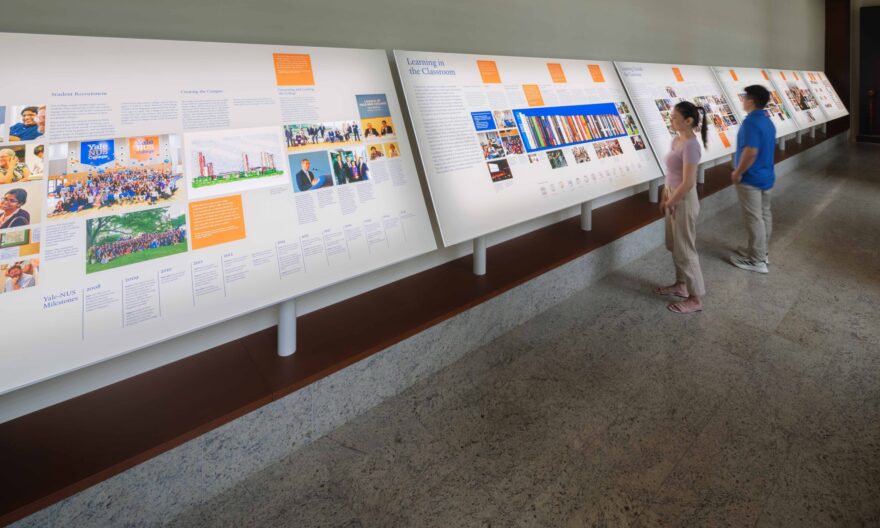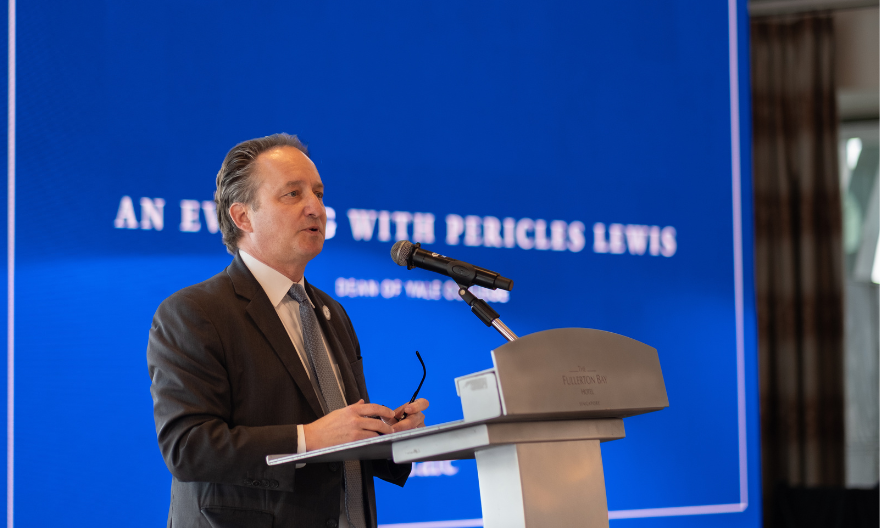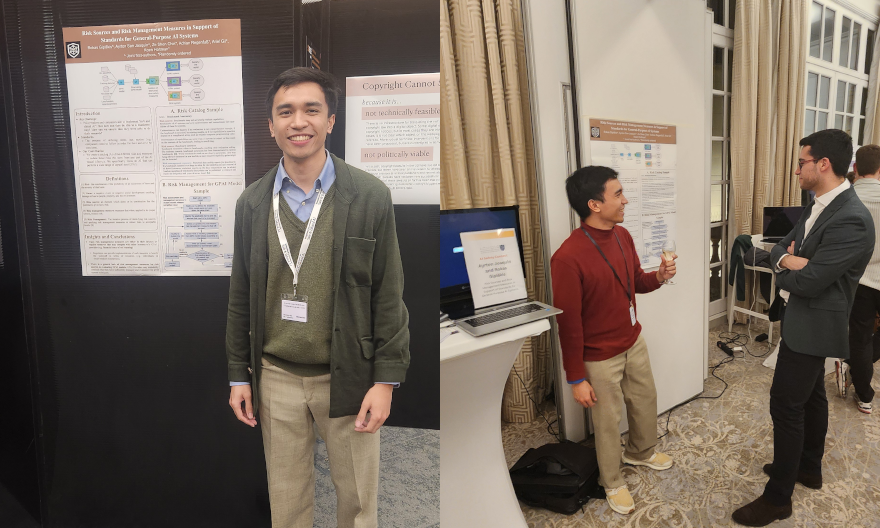Yale-NUS alumnus and student contribute to anthology “Not Without Us” on experiences in disability studies
The College hosted a book discussion where the editors and contributing authors share their perspectives on disability in our lives

The intersection of disability studies and literature provides a rich and complex landscape for exploration. Yale-NUS College alumnus Daryl Yang (Class of 2019) and Philosophy major Yihui Xie (Class of 2023) contributed their research and personal stories in the recently published anthology “Not Without Us: perspectives on disability and inclusion in Singapore,” a groundbreaking collection of essays that take a creative and critical approach to disability studies.
On 7 March 2023, Yale-NUS College hosted a book discussion, inviting two of the three editors Victor Zhuang and Associate Professor Wong Meng Ee, and Daryl and Yihui as contributing authors.
Daryl got involved in the book project while he was working on his Yale-NUS College final year capstone which focused on exploring how disability activists mobilised the United Nations Convention on the Rights of Persons with Disabilities (CRPD) after Singapore ratified the treaty. He got to know one of the anthology editors and a leading disability studies scholar in Singapore, Victor Zhuang, a Fung Global Fellow at Princeton University, and International Postdoctoral Scholar at Nanyang Technological University.
“I’m grateful for the opportunity to be part of this important milestone in the journey towards disability justice in Singapore. My chapter offers insight into how disability activism works in Singapore and what we can do to realise the principle of “nothing about us without us” in Singapore.”
The principle of “nothing about us without us” is a fundamental concept in disability rights and advocacy. It highlights the importance of including people with disabilities in decision-making processes that affect their lives, and ensuring that their perspectives and experiences are taken into account. This notion is rooted in the idea that people with disabilities are the best experts on their own needs and that their voices should be central to the development of policies, programmes, and services that impact them.
“Writing the chapter has made me reflect on the concrete ways by which we can promote and center the voices of disabled people in Singapore. This is a much larger project that requires a paradigm shift in how we even think and talk about disability, and I believe the book – and my chapter – are part of that push towards a more critical approach towards not just disability but just the very idea of difference in Singapore,” Daryl added.
Yihui tells more of a personal story in her chapter. She sees her involvement in the project as a process of finding a voice and coming to terms with her identity as a hard of hearing person.
“My experience with being a foreigner in Singapore intersects with disability in a lot of ways. Speaking English as a second language and navigating a new environment is very much like a disabled person navigating society that is built for non-disabled people. A lot more people have been to or lived in a foreign country. This is something that able bodied people can relate to and can extend the concept of disability.”
Yihui emphasised the transient nature of able-bodiedness during the talk:
“People can move between disabled and able-bodied. The disabled experience is about caring for disabled people and issues, and caring beyond standard bodies and modes of what being human is. Disabled people can be discriminated against because they are seen as less human and less deserving of respect. But policies and facilities that benefit disabled people can benefit everyone. For example, close-captions can benefit people who do not speak the language well, or people watching video in a noisy environment. Also, the ramps for people in wheelchairs also benefit mothers with toddlers.”

During the event, the editors Victor Zhuang and Assoc Prof Wong Meng Ee elaborated on the story behind the origination of the project and the approach they chose to take.
“In the disability study space, we don’t see disability as originating in the body. Rather, it is something that is constructed, created, from the external environment. We wanted to take a critical approach to disability study,” Victor shared.
Assoc Prof Wong, Associate Professor in Psychology and Child & Human Development at National Institute of Education, emphasised that he and his team created this book to fill the gap of disability literature in Singapore. He recalls students requesting for more local perspectives in his end of year evaluations.
“An important aspect of what this volume brings to the community are the local voices, the experiences in Singapore. It helps the community understand that the challenges we experience are consistent with those elsewhere.”
Moreover, he advised on how to be a powerful ally:
“Reaching out to a disabled friend, understanding and getting to know the person in a deeper way, and what their experiences are – this can deepen your relationship in a way that you may not otherwise have an opportunity.”




